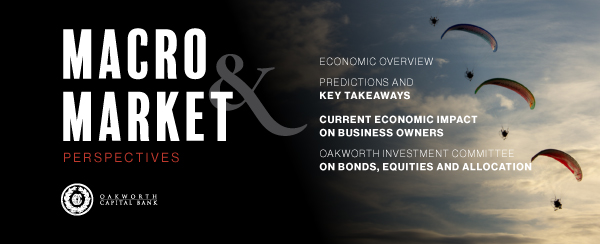Having lived most of my life in Alabama, I can probably tolerate higher temperatures better than someone who has never left, say, Maine. Conversely, I undoubtedly fare much worse in colder weather than our imaginary Mainer friend.
To that end, the average high in Portland, Maine, during July is a very pleasant 79.5 degrees Fahrenheit. However, it is a pretty frigid 32.4 degrees in January. By comparison, the numbers are 91.0 and 50.7 in Birmingham respectively.
However, enough is enough.
If the weather forecast holds, our metropolitan area will have experienced 24 days during July 2023 when the temperature topped 90.0. Even worse, weather.com currently predicts the highs will be above 90.0 every day until August 30, and above 95.0 each day in the upcoming week.
Forget winning the lottery, give me an HVAC company. This has been, is and will continue to be brutal.
So much so, the heat has undoubtedly changed consumer behavior.
My wife and I celebrated our anniversary with a 5-day weekend this past week. We spent it in Key West, Florida, which neither of us had previously visited. If you have never been there, think of it as a smaller, cleaner, nicer and safer New Orleans. At least that was our experience.
It was also as hot as the surface of the sun. To be sure, it is going to be hot down there during the middle of the summer. However, the heat was extreme even by local measures. So much so, the local weekly proclaimed the recent heat wave as the hottest ever in the Conch Republic.
I don’t doubt it, as the heat index reached no less than 105.0 every day we were there. This made walking in a very walkable town something of a chore. I am here to tell you we ducked into the A/C at every chance.
The walk back to our hotel from the Fort Zachary Taylor State Park was especially harsh. There wasn’t a cloud in the sky, the sun was beating down on us, and Beth was fading fast. I had to do something, anything to ameliorate the situation. While I could have called an Uber, it would have meant waiting in the heat for it to arrive. So, I did the next best thing, and promised her a piña colada at the Green Parrot Bar, roughly halfway, if she could just make it there.
Bingo. That worked like a charm.
This has a point.
The recent heat wave is changing consumer behavior, and August will likely be even worse.
Think about it.
- Are the oppressive temperatures keeping you inside a little more than normal?
- How does a nice al fresco lunch sound to you?
- Anyone else bringing their lunch to avoid having to deal with the heat during the middle of the day?
- Put off the round of golf?
- Mowing the grass?
- Have you stopped going to the pool because it feels like bath water?
The list goes on and on.
However, the biggest change in consumer behavior likely has to do with the air conditioner. It is virtually impossible to keep the house at a pleasant temperature without running the A/C non-stop, probably at a lower temperature than normal. Just open up the door, and Mother Nature sucks out whatever chill there was like nobody’s business.
Trust me, more than a few people are going to be, shall we say, less than pleased with their utility bills in July and August, at the least. That and HVAC repairs for many.
Intuitively, the more money we pay Southern Company, local EMC, Duke Power, Riviera Utilities, Nashville Electric Service, Dominion Energy, etc., the less we have to spend on, well, everything else. While a higher monthly electric bill might not significantly alter the Top 1% spending patterns, most people will have to get used to dealing with a little less.
To be sure, the change in the electric bill alone isn’t going to drive the economy into the ditch. It is just math.
- Let’s assume the average household’s July bill will be, say, $50 higher this year than is normal for the month.
- The Federal Reserve estimates there are roughly 131.2 million households in the United States.
- So, $50 times 131.2 million equals $6.56 billion.
- While no small sum, it is about 1% of the most recent monthly Advance Retail Sales, currently more than $600.5 billion. Further, you have to remember, this consumer is still spending this money in the economy. As such, it is not completely lost.
After all, the local utility has employees. It has to buy the necessary fuel, and all of that good stuff.
Therefore, in macroeconomic terms, this heat wave probably won’t have a tremendous negative impact on the topline number.
No, the potential for economic pain is more localized. It could hit the mom & pop restaurant and corner bar between the eyes. These were already operating on razor thin margins. The privately held golf course could also experience some troubles. After all, this is big money season. If every tee time isn’t full during the summer, tummies won’t be in the winter. If you catch my drift.
In essence, when consumer patterns change, as they will this summer, smaller businesses will likely bear the brunt of the pain.
Those and companies which are dependent on outdoor and/or seasonal activity. Can you imagine how miserable a theme park would be in 100+ degree heat or heat index? To that end, was anyone at Disney World last weekend when the heat index was between 105-108?
All of this is to say, there are times when the weather forecast is one of the more important economic reports. This is one of those times, as people are spending more on utilities and HVAC repairs and trying to stay out of the heat. Obviously, this will have repercussions elsewhere.
At least they will here in central Alabama.
As for our friends in Portland, Maine, they will see a high of 78.0 today with thunderstorms. Further, if weather.com is accurate, yesterday (07/28/2023), was the last day of 80+ heat for the year. Wow. Doesn’t that sound nice as we swelter here in the South (and elsewhere).
However, remember, the shoe will be on the other foot this winter.
Thank you for your continued support. As always, I hope this newsletter finds you and your family well. May your blessings outweigh your sorrows on this any every day. Also, please be sure to tune into our podcast, Trading Perspectives, which is available on every platform.

John Norris
Chief Economist
Our latest edition of Macro & Market Perspectives is here. Click the image below for more.
Please note, nothing in this newsletter should be considered or otherwise construed as an offer to buy or sell investment services or securities of any type. Any individual action you might take from reading this newsletter is at your own risk. My opinion, as those of our Investment Committee, is subject to change without notice. Finally, the opinions expressed herein are not necessarily those of the rest of the associates and/or shareholders of Oakworth Capital Bank or the official position of the company itself.




